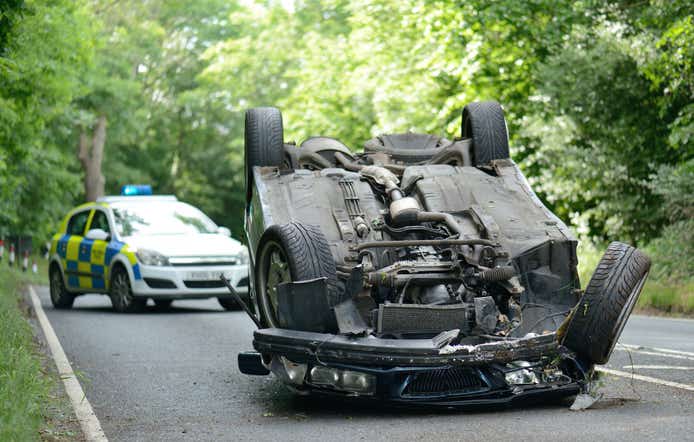Why is my car squeaking?
Car squeaking and squealing noises could be due to minor issues like worn-out serpentine belts or brake pads that are easy to fix. Unfortunately, car squeaking when driving can also be a sign of much bigger problems with things like suspension and power steering systems.
If you hear a squeaking noise while driving, don’t ignore it. Car squeaking can be an early warning signal that something is seriously wrong, so you should get an expert to look at the car. Failing to act early enough could land you with a bigger bill and even be dangerous.
Get a car insurance quote
See a range of car insurance quotes in just a few minutes when you compare with Uswitch
There are many causes of that squeaking noise while driving, so it’s important to think about when the car squeaking noise occurs. For example, if it happens when you press your foot down on the brake, there’s a likely obvious cause – it’s your car breaks squeaking.
Here are some common causes of car squeaking noises:
- A car fluid needs topping up
- An issue with the serpentine belt
- Worn bearings
- Failing cambelt or water pump pulley
- Brake pads need changing
- Power steering system problems
- Suspension system issues.
Squeaking when you turn on the ignition
This is often due to an issue with the serpentine belt, which powers things like the air conditioning, power steering, alternator and fan. Also known as the drive belt or fan belt, it typically needs replacing due to wear every 50,000 miles or so.
Squeaking alternator pulley
The alternator pulley lets the serpentine belt spin the alternator. In turn, the alternator converts mechanical energy to electrical energy to charge the car’s battery.
Simple lubrication and cleaning can stop the squeaking noise coming from an alternator pulley as it means the serpentine belt can run smoothly again.
Squeaking around the cambelt
The cambelt, or timing belt as it’s also called, controls the timing of your car’s engine by keeping the crankshaft and camshaft in synchronisation. It’s pretty important as the crankshaft and camshaft help convert the engine’s energy into motion.
Cambelts need to be replaced anywhere from every 40,000 to 100,000 miles, depending on the car’s make and model. A squeaking noise while driving can be caused by either the cambelt becoming worn or loose. It’s dangerous if the cambelt actually snaps and this could also cause serious damage to the car. Cambelt maintenance is critical.
Squeaking from the water pump pulley
Car squeaking when driving can also be caused by the water pump pulley. It’s attached to the water pump that cools the engine and is powered by the serpentine belt.
The water pulley will make a squeaking sound if it’s become loose and needs tightening or replacement. A similar noise can also be caused by worn bearings in the water pump motor.
Squeaking when you speed up or slow down
Squeaking when you speed up is often due to a worn serpentine belt that needs replacing. When cracks develop, the belt will run less smoothly. In very old cars, it could be a V-belt that needs replacing – the smaller V-belts were replaced by a longer serpentine belt in new models from the 1970s.
Squeaking noise while driving slowly can equally be caused by an issue with the serpentine belt. But it could also be a sign there’s a problem with your breaks.
Squeaking when you press the brakes
Squeaking when you press the brakes is a sure sign that something needs to be replaced.
Car brakes squeaking are often caused by:
- Worn brake pads – essential to effective breaking as they create friction to stop the car
- Worn brake rotors – the circular disks on each wheel that brake pads press against
- Worn break calipers – these house the brake pads and pistons.
Some cars will have brake sensors on the dashboard telling you when there’s an issue. Otherwise, think of any squeaking sound when you brake as a warning light.
Squeaking as you turn the steering wheel
Common causes for squeaking when you turn the car include:
- The power steering fluid is low and needs topping up
- Contaminated power steering fluid
- Power steering pump failure
- A steering component needs lubrication
- The steering wheel housing is rubbing against the interior trim.
If you’re getting squeaking when turning, the first step is to top up the power steering fluid. If that doesn’t do the trick, it’s best to get a mechanic to look at the car.
Squeaking noises from the suspension
Squeaking noises from the suspension are common, especially as cars get older.
The suspension system absorbs the shocks and vibrations of the wheels due to bumps and imperfections such as potholes on the road. It makes for a smooth ride.
Squeaking noises could mean the suspension system has just lost some of its lubrication – it’s an easy fix to get your suspension greased up again. But it could also be that a suspension component needs replacing, including anything from springs, and shock absorbers through to ball joints.
How can I prevent my car from squeaking?
Keeping your car well lubricated can help prevent your car from squeaking. This includes checking the level and topping up when necessary your car’s:
- Brake fluid
- Power steering fluid
- Clutch fluid
- Engine oil.
It’s quite easy to top up your car’s fluids but you’ll need to follow the instructions in your car’s manual. If a fluid reservoir has become contaminated with dirt or debris it should be drained and then refilled – you might want a mechanic to do this for you.
Regular servicing is also essential to help prevent those squeaking noises as a mechanic can often spot issues early on. Things like the serpentine belt will need replacing every 50,000 miles or so, in line with your car maker’s recommendations. Other things like the brake pads need to be replaced more regularly to prevent squeaking – in this case, it’s every 10,000-20,000 miles.
Keeping the car in good condition with regular servicing will often save you money in the longer run, as the car should run more efficiently. It could also help to avoid more serious damage to the car – for example, if a serpentine belt isn’t replaced early enough and actually snaps while you’re driving repairs can get more costly.
Will a squeaking noise affect my insurance?
If your car needs repairs due to general wear and tear, these won’t usually be covered by standard comprehensive car insurance as it’s designed to cover repairs caused by an accident.
You can take out a car warranty, also known as mechanical breakdown insurance, protecting you in the event of an unexpected breakdown. This will typically cover any replacement parts and labour as well as car hire while yours is being repaired. A few car manufacturers will include a 7-year car warranty when you buy a brand-new car.
A car warranty tends to come with fairly strict terms and conditions so you could easily invalidate it by not maintaining the car properly. You need to get the car serviced in line with the particular servicing schedule the manufacturer recommends. If you ignore a squeaking noise while driving, there’s also a greater risk your warranty won’t cover a major repair that’s needed if it’s found to be due to your negligence.
Get a car insurance quote
See a range of car insurance quotes in just a few minutes when you compare with Uswitch
FAQ
Is it safe to drive a squeaky car?
A squeaky car might be caused by something minor like a lack of lubrication as metal parts rub against each other or don’t run smoothly. But it can also be a sign that something more serious is wrong. For example, it could be dangerous to ignore car squeaking when driving if it’s because the cambelt is worn as this could suddenly snap.
How much does it cost to fix a squeak?
There’s no hard and fast rule, it just depends on what the issue is. In general, the quicker you get things sorted the better – replacing a part when it starts to become worn could prevent more serious damage. Expect to pay up to £200 to replace a serpentine belt. If car squeaking is just caused by a lack of power steering fluid, you can buy a 1 litre container for under £10 and top it up yourself.




